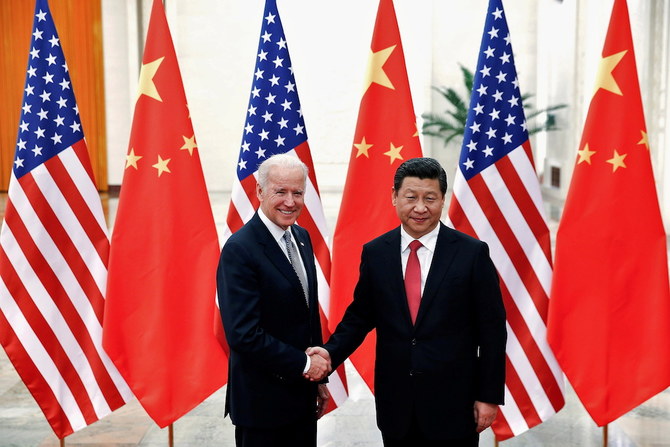
A Chance for a Tough Alliance against China: The Positions of Japan and Germany’s New Leaders
Kishida, who succeeds former Prime Minister Yoshihide Suga, who stepped down after a year, faces elections to the House of Representatives at the end of October. Scholtz is closest to succeeding Angela Merkel, who is retiring after 16 years of service, but faces the hurdle of coalition talks with the mid-sized Green and Free Democratic Parties.
One can say that the futures of Japan and Germany, the third- and fourth-largest economies after America and China, are essentially being entrusted to these two men. The U.S. administration of Joe Biden is grappling with the aftermath of his bungled military pullout from Afghanistan and internal turmoil. As tremors become visible in the Japanese-American-European alliance, it is questionable whether a fresh start can be made to strengthen cooperation.
The 4 Great Economies Make Rectifying Inequality a Policy Pillar
Two auxiliary lines indicative of global trends can be drawn from the stances of the Biden administration, which launched in January, and Japan and Germany’s new leaders. One is the perspective of rectifying inequality.
Biden promoted “Build Back Better,” but his recent slogan is “Fair Share.” “50 major corporations in America … pays zero? Come on. Come on. It’s just wrong. It’s just not fair.” On Sept. 24, he complained that he was “tired of trickle-down,” the idea that benefits dribble down from the rich to the lower class.
“Without distribution, there will be no future growth.” Kishida’s main policy objective sounds like he misheard the former opposition party’s line. He also trumpets the difference between himself and Shinzo Abe’s government: he is considering hiking the flat 20% tax on stock transfers and dividends.
Scholtz’s SPD also draws a line between themselves and the business-friendly Merkel era with their policy pillar of addressing inequality by raising taxes on the upper class. Keeping in mind those who worry about not being able to pay the rent, he pledges to realize an “affordable lifestyle.”
Even in Communist China, President Xi Jinping speaks of “common prosperity.” This is a forceful tactic of sucking up the wealth from giant corporations and high earners and redistributing it to low earners.
The worldwide COVID-19 pandemic has deepened the gulf between the poverty-stricken lower class and the upper class blessed with capital. This inequality, which magnifies the people’s discontent, can be ignored no longer. That trend has become fixed.
But without the economic growth that produces wealth, there is no scope for redistribution. Somewhat frivolous debates also provoke unease.
A Rising Sense of Alarm About China
The other clear auxiliary line is a rising sense of alarm about a China whose authoritarian tones have gotten darker.
“Chinese-American relations are the tensest they’ve been in 15 years. From security to the economy to technological competition, worsening is apparent in every field. Even with climate change, an agreement is really difficult, and that had been viewed as having room for compromise,” says Zack Cooper of the American Enterprise Institute in the U.S.*
In Japan and Germany as well, the Chinese menace is expanding in the arenas of security and economic competition. Constanze Stelzenmueller of the Brookings Institution’s Center on the United States and Europe points out that “both the Greens and the FDP are critical of Merkel’s China policy, and even in big parties like the SDP, many people are of the same opinion.”*
Volker Stanzel, who served as German ambassador to China and Japan, predicts that “Germany’s China policy will greatly change and Chinese retaliation will probably also be more severe.” Mindful of criticism of human rights violations against minorities in China’s Xinjiang Uighur Autonomous Region, he thinks it is possible that the next government will move to strengthen laws and penalties mandating that companies confirm that their partners protect human rights. He says that Chinese acquaintances are pinging him over the phone about the Greens’ intended China policy.
Kishida heard from Xi in his first phone call that “China and Japan are separated by a narrow belt of water,” but in a phone consultation with Biden, Kishida affirmed his cooperation with “peace and stability in the Indo-Pacific.” Mindful of the Chinese threat, he has created the post of Minister of Economic Security and plans to name a cabinet secretary in charge of human rights. Kishida cannot adopt a wishy-washy attitude either.
A Sense of Disappointment in America Spreads Among Allies
The Biden administration began by emphasizing its alliances with Europe, but now faces difficulties. Discord has spread over the lack of information-sharing around the American military’s withdrawal from Afghanistan and the cancellation of France’s submarine provision plan with Australia due to its coordination with America and Britain. Cooper tells me that “disappointment in America is spreading among allies who expected a change from the [Donald] Trump administration.”*
Biden’s billboard policies — huge infrastructure expenditures, support for living expenses and child care — are having a hard time getting passed, and the downward trend in the administration’s approval ratings continues. China has applied to join the Trans-Pacific Partnership that America left, and Chinese warplanes make more threatening flights in the Taiwan area. These actions are getting a feel for the footing of a turbulent America and its allies.
The Biden administration has begun seeking dialogues with China over trade and security. But aiming for a breakthrough by bilateral talks is not a wise plan.
“Germany will host the Group of Seven summit in 2022. I expect a G-7 resolution that tops this year’s on the Taiwan Strait.”* Ryan Hass, who was tasked with China policy under Barack Obama’s administration and is now with the Brookings Institution, supports containment of China through multilateral cooperation. The governments of Japan and Germany’s new leaders may provide a chance to rebuild an alliance that acts tough with China.
*Editor's Note: These statements, though accurately translated, could not be verified.

